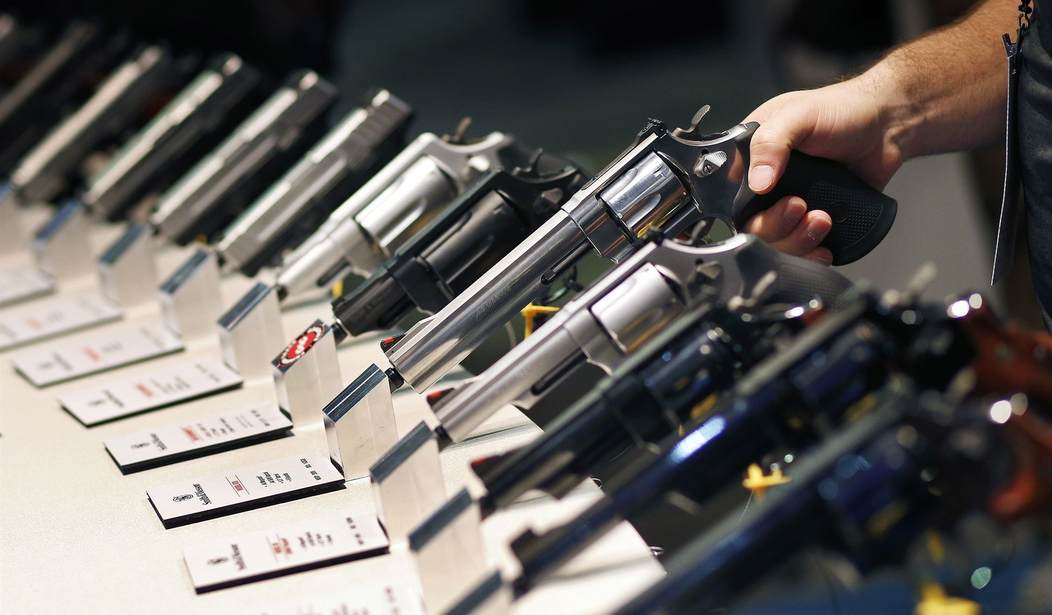AP Photo/John Locher, File
While New Jersey continually tries to push for smart guns, companies have been resistant to develop the technology. Part of that, I’ve argued, is because no one wanted to trigger the clock built into New Jersey’s smart gun law.
However, there seems to be an even better reason for gun companies not to develop the technology. No one wants to buy it.
A newly released survey shows gun owners aren’t opposed to the idea of authorized user technology in firearms. But only 5 percent would be very likely to purchase one themselves due to their concerns about reliability and cost. About 70 percent said they were very or somewhat concerned about the reliability of the so-called “smart guns.”
Does This Sound Familiar? It should.
In 2013, NSSF hired a noted polling firm, McKeon and Associates, to field a national survey on authorized user technology to see what the general adult population knew about the technology, and what sort of demand may be seen in the marketplace for these still-hypothetical guns. The results showed that only 14 percent were very or somewhat likely to purchase a “smart gun.” When told that such firearms would incorporate biometric or radio frequency identification (RFID) with an activation system that would rely on battery power, 74 percent of respondents said that these firearms would not be reliable at all or very reliable. Only 16 percent thought “smart guns” would be very or somewhat reliable. Some 10 percent responded “don’t know.” Gun owners overwhelmingly (84%) believed a smart gun would not be reliable, while a clear majority (60%) of non-gun owners also believed they would not be reliable.
The only issue I have with smart guns is that their existence will unconstitutionally restrict New Jersey residents to certain firearms.
Not that smart gun legislation is the only way for that to happen (see also: California).
The firearm industry, though, is made up of businesses. Businesses exist for the purpose of making money. To do that, they provide goods or services that people want. They don’t dictate the market so much as respond to it.
If potential gun buyers have no interest in smart guns, then there’s no reason for gun makers to pursue the technology. There’s no market for it, contrary to what anti-gun activists may hope and dream.
For many gun owners and potential gun buyers, such firearms aren’t attractive for a variety of reasons, most of which are outlined above. We don’t typically oppose its existence so much as we don’t want them.
Gun companies have no reason to pursue such technology as it’s likely to cost them millions of dollars and offer no return on investment. Even grants won’t help because there’s no way those lines would be profitable, even if the tooling and such were dropped in place. After all, the electronics alone would necessitate dedicated manufacturing equipment, all to produce a product that no one would want to buy.
The hardest part for smart gun advocates to accept is that the lack of reliability will always be an issue. We’re never likely to trust a device with more failure points with our lives. Look at the fits we get from our computers, tablets, and cell phones. These are mostly mature technologies that have had decades to get things right.
Yet, they don’t. They continue to have issues that frustrate us more and more.
I would be hard pressed to believe that a new technology would somehow be devoid of any of this. Since this technology is also supposed to be saving my life, I’ll give it a hard pass and stick with the old reliable options.








Join the conversation as a VIP Member